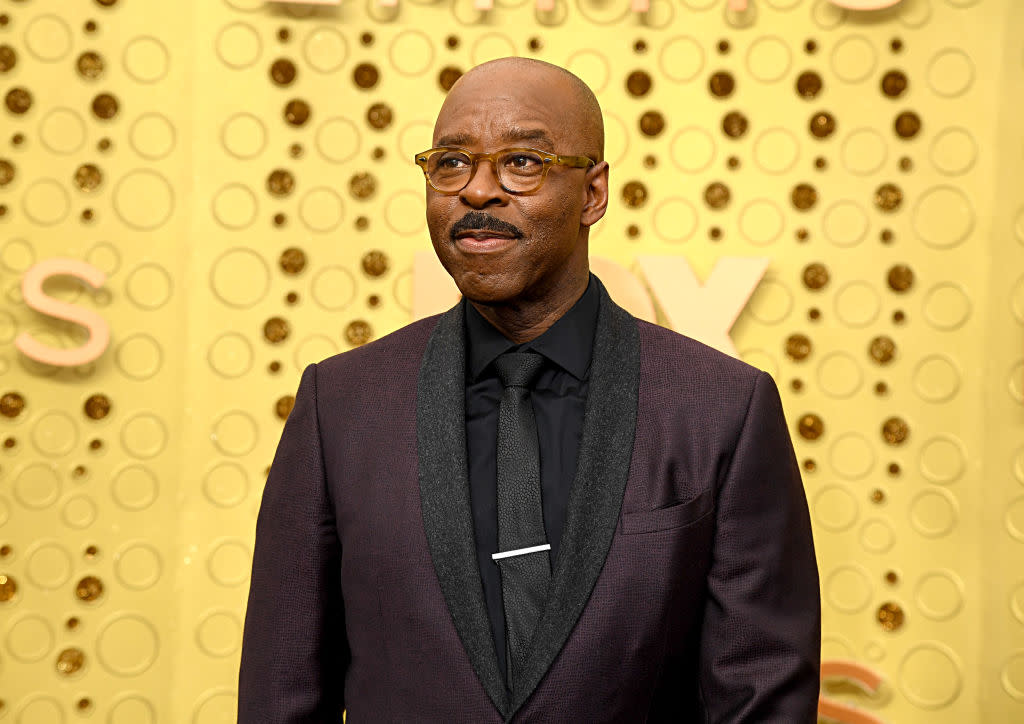Courtney B. Vance says soldier threatening him with a bayonet during Detroit riots in the ‘60s was a 'defining moment'

Actor Courtney B. Vance turned 60 this year, but he often thinks about an event during his Detroit childhood in the 1960s, as residents rioted over racial inequality. The National Guard went in to end it.
“We grew up in Detroit in '68, with the riots in '67, and we lived on West Grand Boulevard, and the tanks came right down our street,” Vance said Wednesday on SiriusXM’s The Joe Madison Show. “And I was into G.I. Joe, and I went down... and I saw G.I. Joe, and I took off, before my parents could get me. Because I was going to get G.I. Joe! And the soldier turned his bayonet on me. And I was in shock by the time my mother and father were on me, and they pulled me back. Defining moment.”
By now, Vance is tired of waiting. He sees the possibility of a real change at this very moment, as people nationwide protest police brutality against black people, following the death of George Floyd.
“This is an opportunity for us to begin to go to the table once again and say, now is the time. Not patience. We’ve been patient. Now is the time,” Vance said. “There’s a reason that folks of color with COVID-19 are impacted more severely, all the different types of illnesses… it’s all tied to how we do business in our country, and it’s time to begin to look at it.”
Vance, who serves as president of the SAG-AFTRA Foundation, said his family, which includes his wife, Angela Bassett, and their 14-year-old twins, watched Oprah’s TV event “Where Do We Go From Here?” this week about how the country can move forward.
“You know now that it doesn’t work,” Vance said. “You’ve known that COVID-19 is impacting the folks of color because of health issues, the diabetes and the blood pressure, what are you going to do so that they get the same care as the white folks, as Asian folks? People are people.”
Vance said a speaker on “Where Do We Go From Here?” noted that Derek Chauvin, the police officer who kneeled on Floyd’s neck for eight minutes and 46 seconds, who’s since been charged with second-degree murder, used a “hunter’s move.”
“That’s a deer, and they sit on the deer's neck until the fight goes out, and the deer just suffocates and dies after he’s been shot so he doesn't buck around and stab you with his antlers,” Vance said. “It was a hunter’s move. Do you understand that? That was a hunter’s move. That’s a man there. That’s somebody’s father, that’s somebody's uncle, that’s somebody's brother, that’s somebody’s son. That’s a man. That’s every man that just went under. Because that’s what they said. This is a power move. This is about power. It’s about power, and it’s not about technology, what we need to film more. The camera was on him. He knew the camera was on, and he did it anyway.”
Besides that encounter with the soldier, the People v. O.J. Simpson: American Crime Story star noted several other defining moments of his life, such as the first time he was old enough to vote in an election.
He urged others to make their own voices heard at the ballot box.
“Vote,” he said. “Stop the madness, increase the peace and vote.”
Read more from Yahoo Entertainment:


